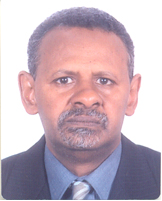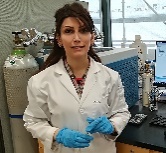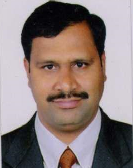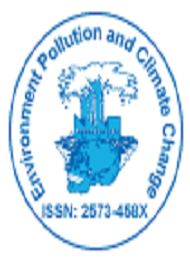Theme: Scientific Challenges and Brilliance of new era in Pollution Control
Pollution Control 2019
Conferenceseries LLC Ltd is an amalgamation of Open Access Publications and worldwide international science conferences and events. Established in the year 2007 with the sole aim of making the information on Sciences and technology "Open Access", Conferenceseries LLC Ltd publishes scholarly journals in all aspects of Science, Engineering, Management and Technology journals. Conferenceseries LLC Ltd has been instrumental in taking the knowledge on Science & technology to the doorsteps of ordinary men and women. Research Scholars, Students, Libraries, Educational Institutions, Research centers and the industry are main stakeholders that benefitted greatly from this knowledge dissemination. Conference series LLC Ltd also organizes 3000+ International conferences across the globe, where knowledge transfer takes place through debates, round table discussions, poster presentations, workshops, symposia and exhibitions.
Conference Series llc LTD takes immense pleasure to extend our warm welcome to invite all the participants from all over the world to attend 5th International Conference on Pollution Control & Sustainable Environment during March 14-16, 2019 at London, UK which will entail lively debates, prompt keynote presentations, Oral talks, Poster presentations, workshops and networking opportunities around a core of plenary and concurrent sessions based on essential topics in the Pollution Control sector.
Pollution Control 2019 conference is organizing with the theme of “Scientific Challenges and Brilliance of New Era in Pollution Control”
Conference Series llc LTD organizes environmental conferences series 1000+ Global Events inclusive of 500+ Conferences, 700+ Upcoming and Previous Symposiums and Workshops in USA, Europe & Asia with support from 1000 more scientific societies and publish 700+ Open access journals which contains over 50000 eminent personalities, reputed scientists as editorial board members.
Pollution Control 2019 Conference is a forum to explore issues of mutual concern as well as exchange knowledge, share evidence and ideas, and generate solutions. The conference is all about promoting global health issues and advanced technologies used to control and regulate the pollution. This conference includes various types of pollutions, human impact on the environment, pollution risk assessment, advanced control methods.
The Conference brings together experts, researchers, scholars and students from all areas of Basic science, Chemical engineering, Earth and planetary sciences, Ecology, Environmental science, Environmental toxicology, Bioremediation and Public health, Occupational and industrial safety.
One of the major trends in the market is the development of new and improved air pollution control systems/equipment with enhanced reliability and reduced power consumption; for instance, development of an optimized wet process that has higher desulfurization efficiency and improved limestone injection.
According to the report, increased demand for power is one of the major factors driving the market. Coal-based power plants emit a large volume of harmful gases into the environment. This has created the need to install and adopt air pollution control equipment in plants. The analysts forecast the Global Air Pollution Control market to grow at a CAGR of 6.47% over the period 2014-2019.
Analysis of the Global Air Pollution Control Equipment in Energy and Power Market finds that the market earned revenues of $7.27 billion in 2010 and estimates this to reach $9.69 billion in 2017.
Track 1 Pollution:
Pollution is the presence of a pollutant in the environment and is often the result of human actions. Pollution has a detrimental effect on the environment. Animals, fish and other aquatic life, plants and humans all suffer when pollution is not controlled. In other words, Pollution is the introduction of contaminants into the environment that causes harmful and toxic effects to living things. Pollution can take the form of chemical substances or energy, such as noise, heat or light. Pollution is often classified as point source pollution or non-point source pollution. Noise pollution, soil pollution and light pollution too are the damaging the environment at an alarming rate. Things as simple as light, sound and temperature can be considered pollutants when introduced artificially into an environment. Air pollution is by far the most harmful form of pollution in our environment. Air pollution is cause by the injurious smoke emitted by cars, buses, trucks, trains, and factories, namely sulphur dioxide, carbon monoxide and nitrogen oxides. Toxic pollution affects more than 200 million people worldwide. In some of the world’s worst polluted places, babies are born with birth defects, children have lost 30 to 40 IQ points, and life expectancy may be as low as 45 years because of cancers and other diseases.
Related Pollution Control Conferences | Water Pollution Conferences| Environmental Conferences
7th World Congress and Expo on Green Energy, June 24-25, 2019 Barcelona, Spain; 2nd World Conference on Soil Microbiology, Ecology and Biochemistry, February 25-26, 2019 London, UK; 12th World Congress and Expo on Recycling, April 01-02, 2019 Paris, France; 21st International Conference on Renewable Energy Resources and Applications June 25 - 26, 2019 Paris, France. 8th International conference on Energy and Sustainability 3 - 5 July, 2019 Coimbra, Portugal; 3rd World Congress on Wind & Renewable Energy June 24-26, 2019 Barcelona, Spain, 11th World Bioenergy Congress and Expo, Germany; Conference on Sustainability Energy & the Environment, Brighton, United Kingdom
Related Societies:
Europe : Finnish Air Pollution Prevention Society (FAPPS),Danish Organisation for Renewable Energy, European Renewable Energy Council, Green Power Forum, INFORSE-Europe, International Renewable Energy Agency, Renewable Energy and Energy Efficiency Partnership, World Council for Renewable Energy, European Wind Energy Association, RenewableUK, EKOenergy, Bureau of International Recycling (BIR)
USA: Toronto Environmental Alliance (TEA), American Council on Renewable Energy, American Solar Energy Society, American Wind Energy Association, Florida Solar Energy Centre, Environmental and Energy Study Institute, California Association of Sanitation Agencies
Asia: Agency for Non-conventional Energy and Rural Technology, IRENA – The International Renewable Energy Agency (Abu-Dhabi), Institute for Global Environmental Strategies (IGES), Society for Environment and Education (SEE)
Track 2 Environmental Pollution:
One of the greatest problems that the world is facing today is that of environmental pollution, increasing with every passing year and causing grave and irreparable damage to the earth. Environmental pollution consists of five basic types of pollution, namely, air, water, soil, noise and light. Chlorofluorocarbons (CFC), released from refrigerators, air-conditioners, deodorants and insect repellents cause severe damage to the Earth’s environment. This gas has slowly damaged the atmosphere and depleted the ozone layer leading to global warming. In short, environmental pollution, almost exclusively created by human activities, has a negative effect on the ecosystem, destroying crucial layers of it and causing an even more negative effect on the upper layers.
Related Water Pollution Conferences| Environmental Conferences | Pollution Control Conferences
2nd World Conference on Soil Microbiology, Ecology and Biochemistry, February 25-26, 2019 London, UK; 7th World Congress and Expo on Green Energy, June 24-25, 2019 Barcelona, Spain; 12th World Congress and Expo on Recycling, April 01-02, 2019 Paris, France; 21st International Conference on Renewable Energy Resources and Applications June 25 - 26, 2019 Paris, France. 8th International conference on Energy and Sustainability 3 - 5 July, 2019 Coimbra, Portugal; 3rd World Congress on Wind & Renewable Energy June 24-26, 2019 Barcelona, Spain, 11th World Bioenergy Congress and Expo, Germany; Conference on Sustainability Energy & the Environment, Brighton, United Kingdom
Related Societies:
Europe : Finnish Air Pollution Prevention Society (FAPPS),Danish Organisation for Renewable Energy, European Renewable Energy Council, Green Power Forum, INFORSE-Europe, International Renewable Energy Agency, Renewable Energy and Energy Efficiency Partnership, World Council for Renewable Energy, European Wind Energy Association, RenewableUK, EKOenergy, Bureau of International Recycling (BIR)
USA: Toronto Environmental Alliance (TEA), American Council on Renewable Energy, American Solar Energy Society, American Wind Energy Association, Florida Solar Energy Centre, Environmental and Energy Study Institute, California Association of Sanitation Agencies
Asia: Agency for Non-conventional Energy and Rural Technology, IRENA – The International Renewable Energy Agency (Abu-Dhabi), Institute for Global Environmental Strategies (IGES), Society for Environment and Education (SEE)
Track 3 Renewable Energy
Renewable energy is energy that is generated from natural processes that are continuously replenished. It is a form of energy that meet our today’s demand of energy without putting them in danger of getting expired or depleted and can be used over and over again. Renewable energy should be widely encouraged as it do not cause any harm to the environment and is available widely free of cost. This includes sunlight, geothermal heat, wind, tides, water, and various forms of biomass. This energy cannot be exhausted and is constantly renewed.
There are many forms of renewable energy sources that can be incorporated by countries to stop the use of fossil fuels. Renewable energy does not include any sources that are derived from fossil fuels or waste products. This energy is replenish able and helps us to reduce greenhouse gas emissions and causes no damage to the environment. If we are going to use fossil fuels at a steady rate, they will expire soon and cause adverse effect to our planet.
- Renewable sources
- Wind power
- Hydropower
- Solar energy
- Geothermal energy
- Energy storage
Related Pollution Control Conferences | Water Pollution Conferences| Environmental Conferences
7th World Congress and Expo on Green Energy, June 24-25, 2019 Barcelona, Spain; 2nd World Conference on Soil Microbiology, Ecology and Biochemistry, February 25-26, 2019 London, UK; 12th World Congress and Expo on Recycling, April 01-02, 2019 Paris, France; 21st International Conference on Renewable Energy Resources and Applications June 25 - 26, 2019 Paris, France. 8th International conference on Energy and Sustainability 3 - 5 July, 2019 Coimbra, Portugal; 3rd World Congress on Wind & Renewable Energy June 24-26, 2019 Barcelona, Spain, 11th World Bioenergy Congress and Expo, Germany; Conference on Sustainability Energy & the Environment, Brighton, United Kingdom
Related Societies:
Europe : Finnish Air Pollution Prevention Society (FAPPS),Danish Organisation for Renewable Energy, European Renewable Energy Council, Green Power Forum, INFORSE-Europe, International Renewable Energy Agency, Renewable Energy and Energy Efficiency Partnership, World Council for Renewable Energy, European Wind Energy Association, RenewableUK, EKOenergy, Bureau of International Recycling (BIR)
USA: Toronto Environmental Alliance (TEA), American Council on Renewable Energy, American Solar Energy Society, American Wind Energy Association, Florida Solar Energy Centre, Environmental and Energy Study Institute, California Association of Sanitation Agencies
Asia: Agency for Non-conventional Energy and Rural Technology, IRENA – The International Renewable Energy Agency (Abu-Dhabi), Institute for Global Environmental Strategies (IGES), Society for Environment and Education (SEE)
Track 4 Air Pollution and Treatment:
A common type of air pollution happens when people release particles into the air from burning fuels. This pollution looks like soot, containing millions of tiny particles, floating in the air. Another common type of air pollution is dangerous gases, such as sulphur dioxide, carbon monoxide, nitrogen oxides and chemical vapours. These can take part in further chemical reactions once they are in the atmosphere, creating acid rain and smog. Other sources of air pollution can come from within buildings, such as second-hand smoke. Finally, air pollution can take the form of greenhouse gases, such as carbon dioxide or sulphur dioxide, which are warming the planet through the greenhouse effect. According to the EPA, the greenhouse effect is when gases absorb the infrared radiation that is released from the Earth, preventing the heat from escaping. This is a natural process that keeps our atmosphere warm.
There are some effective methods which are used to control the air pollution. These are used to filter and purify the air which is polluted. Diffusion of the contaminants in the atmosphere is another approach to the control of air pollution. Dilution of pollutants in air depends on atmosphere temperature, speed and direction of the wind. Vegetation is another way to control air pollution by utilizing carbon dioxide and releasing oxygen in the form of photosynthesis. This purifies the air. Selection of separate areas for industries which would be far from the residential areas is referred as zoning.
Related Water Pollution Conferences| Environmental Conferences | Pollution Control Conferences
7th World Congress and Expo on Green Energy, June 24-25, 2019 Barcelona, Spain; 21st International Conference on Renewable Energy Resources and Applications June 25 - 26, 2019 Paris, France. 12th World Congress and Expo on Recycling, April 01-02, 2019 Paris, France; 2nd World Conference on Soil Microbiology, Ecology and Biochemistry, February 25-26, 2019 London, UK; 8th International conference on Energy and Sustainability 3 - 5 July, 2019 Coimbra, Portugal; 3rd World Congress on Wind & Renewable Energy June 24-26, 2019 Barcelona, Spain, 11th World Bioenergy Congress and Expo, Germany; Conference on Sustainability Energy & the Environment, Brighton, United Kingdom
Related Societies:
Europe : Finnish Air Pollution Prevention Society (FAPPS),Danish Organisation for Renewable Energy, European Renewable Energy Council, Green Power Forum, INFORSE-Europe, International Renewable Energy Agency, Renewable Energy and Energy Efficiency Partnership, World Council for Renewable Energy, European Wind Energy Association, RenewableUK, EKOenergy, Bureau of International Recycling (BIR)
USA: Toronto Environmental Alliance (TEA), American Council on Renewable Energy, American Solar Energy Society, American Wind Energy Association, Florida Solar Energy Centre, Environmental and Energy Study Institute, California Association of Sanitation Agencies
Asia: Agency for Non-conventional Energy and Rural Technology, IRENA – The International Renewable Energy Agency (Abu-Dhabi), Institute for Global Environmental Strategies (IGES), Society for Environment and Education (SEE)
Track 5 Water Pollution and Treatment:
Waste water pollution is caused due to discharge of waste water from industrial and commercial waste into surface waters; untreated discharge of domestic sewage, chemicals into flowing surface waters and disposal of waste and leaching into ground water; eutrophication. The various methods of contamination of wastewater require a variety of strategies to remove the contamination. The various treatments are brine treatment, brine management, solids removal, oil and grease removal, hydro cyclone oil separators, removal of biodegradable organics etc.
The technologies can be designed to provide low cost sanitation and environmental protection while providing additional benefits from the reuse of water. The process of removing undesirable chemicals, biological contaminants, suspended solids and gases from contaminated water is called as water purification. Various techniques are available to remove micro-organisms through water purification.
The various laboratory test methodologies are wastewater quality indicators. They are used to assess suitability of wastewater for disposal or re-use. Tests measure physical, chemical and biological characteristics of the waste water.
Related Pollution Control Conferences | Water Pollution Conferences| Environmental Conferences
21st International Conference on Renewable Energy Resources and Applications June 25 - 26, 2019 Paris, France. 12th World Congress and Expo on Recycling, April 01-02, 2019 Paris, France; 2nd World Conference on Soil Microbiology, Ecology and Biochemistry, February 25-26, 2019 London, UK; 7th World Congress and Expo on Green Energy, June 24-25, 2019 Barcelona, Spain; 8th International conference on Energy and Sustainability 3 - 5 July, 2019 Coimbra, Portugal; 3rd World Congress on Wind & Renewable Energy June 24-26, 2019 Barcelona, Spain, 11th World Bioenergy Congress and Expo, Germany; Conference on Sustainability Energy & the Environment, Brighton, United Kingdom
Related Societies:
Europe : Finnish Air Pollution Prevention Society (FAPPS),Danish Organisation for Renewable Energy, European Renewable Energy Council, Green Power Forum, INFORSE-Europe, International Renewable Energy Agency, Renewable Energy and Energy Efficiency Partnership, World Council for Renewable Energy, European Wind Energy Association, RenewableUK, EKOenergy, Bureau of International Recycling (BIR)
USA: Toronto Environmental Alliance (TEA), American Council on Renewable Energy, American Solar Energy Society, American Wind Energy Association, Florida Solar Energy Centre, Environmental and Energy Study Institute, California Association of Sanitation Agencies
Asia: Agency for Non-conventional Energy and Rural Technology, IRENA – The International Renewable Energy Agency (Abu-Dhabi), Institute for Global Environmental Strategies (IGES), Society for Environment and Education (SEE)
Track 6 Marine Pollution:
Marine pollution occurs when harmful, or potentially harmful, effects result from the entry into the ocean of chemicals, particles, industrial, agricultural and residential waste, noise, or the spread of invasive organisms. Most sources of marine pollution are land based.
Pollutants enter rivers and the sea directly from urban sewerage and industrial waste discharges, sometimes in the form of hazardous and toxic wastes.
Inland mining for copper, gold etc. is another source of marine pollution. Most of the pollution is simply soil, which ends up in rivers flowing to the sea. However, some minerals discharged in the course of the mining can cause problems, such as copper, a common industrial pollutant, which can interfere with the life history and development of coral polyps. Polluted runoff from roads and highways can be a significant source of water pollution in coastal areas.
Ships can pollute waterways and oceans in many ways. Oil spills can have devastating effects. While being toxic to marine life, polycyclic aromatic hydrocarbons (PAHs), found in crude oil, are very difficult to clean up, and last for years in the sediment and marine environment.
Related Environmental Conferences | Pollution Control Conferences | Water Pollution Conferences
12th World Congress and Expo on Recycling, April 01-02, 2019 Paris, France; 2nd World Conference on Soil Microbiology, Ecology and Biochemistry, February 25-26, 2019 London, UK; 7th World Congress and Expo on Green Energy, June 24-25, 2019 Barcelona, Spain; 21st International Conference on Renewable Energy Resources and Applications June 25 - 26, 2019 Paris, France. 8th International conference on Energy and Sustainability 3 - 5 July, 2019 Coimbra, Portugal; 3rd World Congress on Wind & Renewable Energy June 24-26, 2019 Barcelona, Spain, 11th World Bioenergy Congress and Expo, Germany; Conference on Sustainability Energy & the Environment, Brighton, United Kingdom
Related Societies:
Europe : Finnish Air Pollution Prevention Society (FAPPS),Danish Organisation for Renewable Energy, European Renewable Energy Council, Green Power Forum, INFORSE-Europe, International Renewable Energy Agency, Renewable Energy and Energy Efficiency Partnership, World Council for Renewable Energy, European Wind Energy Association, RenewableUK, EKOenergy, Bureau of International Recycling (BIR)
USA: Toronto Environmental Alliance (TEA), American Council on Renewable Energy, American Solar Energy Society, American Wind Energy Association, Florida Solar Energy Centre, Environmental and Energy Study Institute, California Association of Sanitation Agencies
Asia: Agency for Non-conventional Energy and Rural Technology, IRENA – The International Renewable Energy Agency (Abu-Dhabi), Institute for Global Environmental Strategies (IGES), Society for Environment and Education (SEE)
Track 7 Bioenergy and Biofuels
Bioenergy is the single largest renewable energy source today, providing 10% of world primary energy supply. It plays a crucial role in many developing countries, where it provides basic energy for cooking and space heating, but often at the price of severe health and environmental impacts. The deployment of advanced biomass cook stoves, clean fuels and additional off-grid biomass electricity supply in developing countries are key measures to improve the current situation and achieve universal access to clean energy facilities by 2030.
Biofuels are produced from living organisms or from metabolic by-products (organic or food waste products). In order to be considered a biofuel the fuel must contain over 80 percent renewable materials. Bio-hydrogen may be a potential biofuel available from each cultivation and from waste organic materials. Although element is created from non-renewable technologies like steam reformation of gas (~50% of worldwide H2 supply), rock oil processing (~30%) and chemical change of coal (~20%), chlorophyte and cyanobacteria supply another route to renewable H2 production. Steam reforming of methane (biogas) made by anaerobic digestion of organic waste, are often used for bio-hydrogen also. Bio-plastics are any plastic material that's either bio based, perishable, or options both properties. They’re derived from renewable biomass sources, like vegetable fats and oils, corn starch, or micro-biota. Organic phenomenon is that the production of electrical potentials and currents within/by living organisms. Bioelectric potentials area unit generated by a range of biological processes and customarily zero in strength from one to some hundred millivolts.
Solid biomass
Bioelectricity
Green energy and green power
Sewage biomass
Bioethanol
Bio hydrogen
Related Water Pollution Conferences| Environmental Conferences | Pollution Control Conferences
2nd World Conference on Soil Microbiology, Ecology and Biochemistry, February 25-26, 2019 London, UK; 7th World Congress and Expo on Green Energy, June 24-25, 2019 Barcelona, Spain; 12th World Congress and Expo on Recycling, April 01-02, 2019 Paris, France; 21st International Conference on Renewable Energy Resources and Applications June 25 - 26, 2019 Paris, France. 8th International conference on Energy and Sustainability 3 - 5 July, 2019 Coimbra, Portugal; 3rd World Congress on Wind & Renewable Energy June 24-26, 2019 Barcelona, Spain, 11th World Bioenergy Congress and Expo, Germany; Conference on Sustainability Energy & the Environment, Brighton, United Kingdom
Related Societies:
Europe : Finnish Air Pollution Prevention Society (FAPPS),Danish Organisation for Renewable Energy, European Renewable Energy Council, Green Power Forum, INFORSE-Europe, International Renewable Energy Agency, Renewable Energy and Energy Efficiency Partnership, World Council for Renewable Energy, European Wind Energy Association, RenewableUK, EKOenergy, Bureau of International Recycling (BIR)
USA: Toronto Environmental Alliance (TEA), American Council on Renewable Energy, American Solar Energy Society, American Wind Energy Association, Florida Solar Energy Centre, Environmental and Energy Study Institute, California Association of Sanitation Agencies
Asia: Agency for Non-conventional Energy and Rural Technology, IRENA – The International Renewable Energy Agency (Abu-Dhabi), Institute for Global Environmental Strategies (IGES), Society for Environment and Education (SEE)
Track 8 Human Impact on the Environment:
Human applications on various fields may affect the environment which leads to pollution. An increase in population makes excessive demands on natural resources, and increases the demand on agriculture. Using chemical fertilizers, insecticides and herbicides to increase production pollutes the environment with harmful chemicals. Deforestation causes habitat loss and threatens the survival of species of animals and plants.
Environmental impacts caused by the application of technology are often perceived as unavoidable for several reasons. Nanotechnology's environmental impact can be split into two aspects: the potential for Nano technological innovations to help improve the environment, and the possibly novel type of pollution that Nano technological materials might cause if released into the environment. As nanotechnology is an emerging field, there is great debate regarding to what extent industrial and commercial use of nanomaterial will affect organisms and ecosystems.
The environmental impact of mining includes erosion, formation of sinkholes, loss of biodiversity, and contamination of soil, groundwater and surface water by chemicals from mining processes. In some cases, additional forest logging is done in the vicinity of mines to increase the available room for the storage of the created debris and soil. Besides creating environmental damage, the contamination resulting from leakage of chemicals also affects the health of the local population. Mining companies in some countries are required to follow environmental and rehabilitation codes, ensuring the area mined is returned to close to its original state. Some mining methods may have significant environmental and public health effects.
Related Pollution Control Conferences | Water Pollution Conferences| Environmental Conferences
7th World Congress and Expo on Green Energy, June 24-25, 2019 Barcelona, Spain; 2nd World Conference on Soil Microbiology, Ecology and Biochemistry, February 25-26, 2019 London, UK; 12th World Congress and Expo on Recycling, April 01-02, 2019 Paris, France; 21st International Conference on Renewable Energy Resources and Applications June 25 - 26, 2019 Paris, France. 8th International conference on Energy and Sustainability 3 - 5 July, 2019 Coimbra, Portugal; 3rd World Congress on Wind & Renewable Energy June 24-26, 2019 Barcelona, Spain, 11th World Bioenergy Congress and Expo, Germany; Conference on Sustainability Energy & the Environment, Brighton, United Kingdom
Related Societies:
Europe : Finnish Air Pollution Prevention Society (FAPPS),Danish Organisation for Renewable Energy, European Renewable Energy Council, Green Power Forum, INFORSE-Europe, International Renewable Energy Agency, Renewable Energy and Energy Efficiency Partnership, World Council for Renewable Energy, European Wind Energy Association, RenewableUK, EKOenergy, Bureau of International Recycling (BIR)
USA: Toronto Environmental Alliance (TEA), American Council on Renewable Energy, American Solar Energy Society, American Wind Energy Association, Florida Solar Energy Centre, Environmental and Energy Study Institute, California Association of Sanitation Agencies
Asia: Agency for Non-conventional Energy and Rural Technology, IRENA – The International Renewable Energy Agency (Abu-Dhabi), Institute for Global Environmental Strategies (IGES), Society for Environment and Education (SEE)
Track 9 Solid Waste Disposal:
Solid waste is defined as waste that is generated by businesses from an industrial or manufacturing process or waste generated from non-manufacturing activities that are managed as a separate waste stream. Toxic waste, chemical waste, industrial solid waste and municipal solid waste are designations of solid waste.
The wastes may be found in different physical states such as gaseous, liquids, or solids. A hazardous waste is a special type of waste because it cannot be disposed of by common means like other by-products of our everyday lives.
Depending on the physical state of the waste, treatment and solidification processes might be required. They can be the by-products of manufacturing processes. There are various techniques to control the hazardous waste. It can be treated by chemical, thermal, biological, and physical methods. Some hazardous wastes were disposed of in regular landfills. This resulted in unfavourable amounts of hazardous materials seeping into the ground. These chemicals eventually entered natural hydrologic systems. Many landfills now require countermeasures against groundwater contamination.
Related Water Pollution Conferences| Environmental Conferences | Pollution Control Conferences
7th World Congress and Expo on Green Energy, June 24-25, 2019 Barcelona, Spain; 21st International Conference on Renewable Energy Resources and Applications June 25 - 26, 2019 Paris, France. 12th World Congress and Expo on Recycling, April 01-02, 2019 Paris, France; 2nd World Conference on Soil Microbiology, Ecology and Biochemistry, February 25-26, 2019 London, UK; 8th International conference on Energy and Sustainability 3 - 5 July, 2019 Coimbra, Portugal; 3rd World Congress on Wind & Renewable Energy June 24-26, 2019 Barcelona, Spain, 11th World Bioenergy Congress and Expo, Germany; Conference on Sustainability Energy & the Environment, Brighton, United Kingdom
Related Societies:
Europe : Finnish Air Pollution Prevention Society (FAPPS),Danish Organisation for Renewable Energy, European Renewable Energy Council, Green Power Forum, INFORSE-Europe, International Renewable Energy Agency, Renewable Energy and Energy Efficiency Partnership, World Council for Renewable Energy, European Wind Energy Association, RenewableUK, EKOenergy, Bureau of International Recycling (BIR)
USA: Toronto Environmental Alliance (TEA), American Council on Renewable Energy, American Solar Energy Society, American Wind Energy Association, Florida Solar Energy Centre, Environmental and Energy Study Institute, California Association of Sanitation Agencies
Asia: Agency for Non-conventional Energy and Rural Technology, IRENA – The International Renewable Energy Agency (Abu-Dhabi), Institute for Global Environmental Strategies (IGES), Society for Environment and Education (SEE)
Track 10 Industrial Pollution:
There are many causes of industrial pollution, the negative by-products of human industry. One of the main sources is the pollution caused by energy production. By-products produced through industry are another major component of this type of pollution. Besides pollution unique to specific sources, the release of carbon dioxide gas from various industrial sources is a key cause of global warming. The first main source of industrial pollution is the production of electricity. In coal-burning power plants, fly ash is the by-product of burned coal. Once incinerated directly into the atmosphere, most fly ash in the 21st century is either recycled or stored in vast holding ponds.
Outside of energy production, all factories produce some form of pollution. Some of the most harmful to humans and the environment are heavy metals produced as a result of metal refining. Copper, mercury and lead can accumulate in animals throughout the food chain. One of the most harmful forms of industrial pollution is carbon dioxide gas released through the burning of coal and oil. Its increasing presence in Earth's atmosphere is a direct cause of global warming. Despite efforts of developed nations to reduce carbon dioxide emissions, the lax industrial regulations of developing countries have led to a continued increase in emissions.
Related Pollution Control Conferences | Water Pollution Conferences| Environmental Conferences
21st International Conference on Renewable Energy Resources and Applications June 25 - 26, 2019 Paris, France. 12th World Congress and Expo on Recycling, April 01-02, 2019 Paris, France; 2nd World Conference on Soil Microbiology, Ecology and Biochemistry, February 25-26, 2019 London, UK; 7th World Congress and Expo on Green Energy, June 24-25, 2019 Barcelona, Spain; 8th International conference on Energy and Sustainability 3 - 5 July, 2019 Coimbra, Portugal; 3rd World Congress on Wind & Renewable Energy June 24-26, 2019 Barcelona, Spain, 11th World Bioenergy Congress and Expo, Germany; Conference on Sustainability Energy & the Environment, Brighton, United Kingdom
Related Societies:
Europe : Finnish Air Pollution Prevention Society (FAPPS),Danish Organisation for Renewable Energy, European Renewable Energy Council, Green Power Forum, INFORSE-Europe, International Renewable Energy Agency, Renewable Energy and Energy Efficiency Partnership, World Council for Renewable Energy, European Wind Energy Association, RenewableUK, EKOenergy, Bureau of International Recycling (BIR)
USA: Toronto Environmental Alliance (TEA), American Council on Renewable Energy, American Solar Energy Society, American Wind Energy Association, Florida Solar Energy Centre, Environmental and Energy Study Institute, California Association of Sanitation Agencies
Asia: Agency for Non-conventional Energy and Rural Technology, IRENA – The International Renewable Energy Agency (Abu-Dhabi), Institute for Global Environmental Strategies (IGES), Society for Environment and Education (SEE)
Track 11 Waste Management and Treatment:
Waste management is the process of treating solid wastes and offers variety of solutions for recycling items that don’t belong to trash. It is about how garbage can be used as a valuable resource. Waste management is something that each and every household and business owner in the world needs. Waste management disposes of the products and substances that you have use in a safe and efficient manner.
There are a number of concepts about waste management which vary in their usage between countries or regions. Some of the most general, widely used concepts include Waste hierarchy, Life-cycle of a Product, Resource efficiency etc. The management of waste is a key component in a business' ability to maintaining ISO14001 accreditation. Companies are encouraged to improve their environmental efficiencies each year by eliminating waste through resource recovery practices, which are sustainability-related activities. One way to do this is by shifting away from waste management to resource recovery practices like recycling materials such as glass, food scraps, paper and cardboard, plastic bottles and metal.
Related Environmental Conferences | Pollution Control Conferences | Water Pollution Conferences
12th World Congress and Expo on Recycling, April 01-02, 2019 Paris, France; 2nd World Conference on Soil Microbiology, Ecology and Biochemistry, February 25-26, 2019 London, UK; 7th World Congress and Expo on Green Energy, June 24-25, 2019 Barcelona, Spain; 21st International Conference on Renewable Energy Resources and Applications June 25 - 26, 2019 Paris, France. 8th International conference on Energy and Sustainability 3 - 5 July, 2019 Coimbra, Portugal; 3rd World Congress on Wind & Renewable Energy June 24-26, 2019 Barcelona, Spain, 11th World Bioenergy Congress and Expo, Germany; Conference on Sustainability Energy & the Environment, Brighton, United Kingdom
Related Societies:
Europe : Finnish Air Pollution Prevention Society (FAPPS),Danish Organisation for Renewable Energy, European Renewable Energy Council, Green Power Forum, INFORSE-Europe, International Renewable Energy Agency, Renewable Energy and Energy Efficiency Partnership, World Council for Renewable Energy, European Wind Energy Association, RenewableUK, EKOenergy, Bureau of International Recycling (BIR)
USA: Toronto Environmental Alliance (TEA), American Council on Renewable Energy, American Solar Energy Society, American Wind Energy Association, Florida Solar Energy Centre, Environmental and Energy Study Institute, California Association of Sanitation Agencies
Asia: Agency for Non-conventional Energy and Rural Technology, IRENA – The International Renewable Energy Agency (Abu-Dhabi), Institute for Global Environmental Strategies (IGES), Society for Environment and Education (SEE)
Most air toxics originate from human-made sources, including mobile sources (e.g., cars, trucks, buses) and stationary sources (e.g., factories, refineries, power plants), as well as indoor sources (e.g., building materials and activities such as cleaning).
Among other pollution sources, agriculture (livestock farming) is worth mentioning as the largest generator of ammonia emissions resulting in air pollution. Chemicals such as pesticides and fertilizers are also widely used in agriculture, which may lead water pollution and soil contamination as well. Residential sector is another significant source of pollution generating solid municipal waste that may end up in landfills or incinerators leading to soil contamination and air pollution.
Related Water Pollution Conferences| Environmental Conferences | Pollution Control Conferences
2nd World Conference on Soil Microbiology, Ecology and Biochemistry, February 25-26, 2019 London, UK; 7th World Congress and Expo on Green Energy, June 24-25, 2019 Barcelona, Spain; 12th World Congress and Expo on Recycling, April 01-02, 2019 Paris, France; 21st International Conference on Renewable Energy Resources and Applications June 25 - 26, 2019 Paris, France. 8th International conference on Energy and Sustainability 3 - 5 July, 2019 Coimbra, Portugal; 3rd World Congress on Wind & Renewable Energy June 24-26, 2019 Barcelona, Spain, 11th World Bioenergy Congress and Expo, Germany; Conference on Sustainability Energy & the Environment, Brighton, United Kingdom
Related Societies:
Europe : Finnish Air Pollution Prevention Society (FAPPS),Danish Organisation for Renewable Energy, European Renewable Energy Council, Green Power Forum, INFORSE-Europe, International Renewable Energy Agency, Renewable Energy and Energy Efficiency Partnership, World Council for Renewable Energy, European Wind Energy Association, RenewableUK, EKOenergy, Bureau of International Recycling (BIR)
USA: Toronto Environmental Alliance (TEA), American Council on Renewable Energy, American Solar Energy Society, American Wind Energy Association, Florida Solar Energy Centre, Environmental and Energy Study Institute, California Association of Sanitation Agencies
Asia: Agency for Non-conventional Energy and Rural Technology, IRENA – The International Renewable Energy Agency (Abu-Dhabi), Institute for Global Environmental Strategies (IGES), Society for Environment and Education (SEE)
Track 13. Energy and Environment:
Energy and Environment co-related within the technological and scientific aspects as well as energy conservation, and also the interaction of energy forms and systems with the physical setting. The degree of atmospherically greenhouse gas has enlarged by 31st between 1800 and 2000, going from 280 parts per million to 367 parts per million. Scientists predict that greenhouse gas levels may well be as high as 970 parts per million by the year 2100. Various factors are liable for this development, like progress with respect to technical parameters of energy converters, especially, improved efficiency; emissions characteristics and increased life. Numerous environmental policies are enforced across the world for reduction of GHG emissions for improvement of environment.
Wind Energy
- Solar Energy
- Hydroelectric Energy
- Wave and Tidal Energy
- Geothermal Energy
Related Pollution Control Conferences | Water Pollution Conferences| Environmental Conferences
7th World Congress and Expo on Green Energy, June 24-25, 2019 Barcelona, Spain; 2nd World Conference on Soil Microbiology, Ecology and Biochemistry, February 25-26, 2019 London, UK; 12th World Congress and Expo on Recycling, April 01-02, 2019 Paris, France; 21st International Conference on Renewable Energy Resources and Applications June 25 - 26, 2019 Paris, France. 8th International conference on Energy and Sustainability 3 - 5 July, 2019 Coimbra, Portugal; 3rd World Congress on Wind & Renewable Energy June 24-26, 2019 Barcelona, Spain, 11th World Bioenergy Congress and Expo, Germany; Conference on Sustainability Energy & the Environment, Brighton, United Kingdom
Related Societies:
Europe : Finnish Air Pollution Prevention Society (FAPPS),Danish Organisation for Renewable Energy, European Renewable Energy Council, Green Power Forum, INFORSE-Europe, International Renewable Energy Agency, Renewable Energy and Energy Efficiency Partnership, World Council for Renewable Energy, European Wind Energy Association, RenewableUK, EKOenergy, Bureau of International Recycling (BIR)
USA: Toronto Environmental Alliance (TEA), American Council on Renewable Energy, American Solar Energy Society, American Wind Energy Association, Florida Solar Energy Centre, Environmental and Energy Study Institute, California Association of Sanitation Agencies
Asia: Agency for Non-conventional Energy and Rural Technology, IRENA – The International Renewable Energy Agency (Abu-Dhabi), Institute for Global Environmental Strategies (IGES), Society for Environment and Education (SEE)
Track 14 Pollution Control Technologies and Devices:
The control of the emission of various contaminants into the environment which brings down the level of the pollution is done by various updated methods. The various technologies which control the pollution are laser methods, chemical methods, nanotechnology etc. The Pollution control equipment can reduce emissions by cleaning exhaust and dirty air. The various control equipment are bag houses or fabric filters, absorbers, electrostatic precipitators, catalytic oxidizers etc.
There are various technologies used in industrial processes and transportation to control pollution. The technologies for particulate emission control are gravity settling chambers, centrifugal separators, particulate wet scrubbers etc. The use of sensors in the control of pollution has become a wide range application. Sensors detect the pollution in the respective area where it is placed and controls over there.
Process modification is a popular technique to control air pollution. Major efforts are underway in all industries to modify processes to reduce pollution. For example, new oxy furnaces are being developed by Libbey Owens Ford in Toledo to reduce ozone emissions during glass manufacturing.
Related Pollution Control Conferences | Water Pollution Conferences| Environmental Conferences
7th World Congress and Expo on Green Energy, June 24-25, 2019 Barcelona, Spain; 2nd World Conference on Soil Microbiology, Ecology and Biochemistry, February 25-26, 2019 London, UK; 12th World Congress and Expo on Recycling, April 01-02, 2019 Paris, France; 21st International Conference on Renewable Energy Resources and Applications June 25 - 26, 2019 Paris, France. 8th International conference on Energy and Sustainability 3 - 5 July, 2019 Coimbra, Portugal; 3rd World Congress on Wind & Renewable Energy June 24-26, 2019 Barcelona, Spain, 11th World Bioenergy Congress and Expo, Germany; Conference on Sustainability Energy & the Environment, Brighton, United Kingdom
Related Societies:
Europe : Finnish Air Pollution Prevention Society (FAPPS),Danish Organisation for Renewable Energy, European Renewable Energy Council, Green Power Forum, INFORSE-Europe, International Renewable Energy Agency, Renewable Energy and Energy Efficiency Partnership, World Council for Renewable Energy, European Wind Energy Association, RenewableUK, EKOenergy, Bureau of International Recycling (BIR)
USA: Toronto Environmental Alliance (TEA), American Council on Renewable Energy, American Solar Energy Society, American Wind Energy Association, Florida Solar Energy Centre, Environmental and Energy Study Institute, California Association of Sanitation Agencies
Asia: Agency for Non-conventional Energy and Rural Technology, IRENA – The International Renewable Energy Agency (Abu-Dhabi), Institute for Global Environmental Strategies (IGES), Society for Environment and Education (SEE)
Track 15 Pollution and Health Effects:
Scientific studies have linked long-term particle pollution, especially fine particles, with significant health problems including increased respiratory symptoms, such as irritation of the airways, coughing or difficulty breathing, decreased lung function, aggravated asthma, development of chronic respiratory disease in children, development of chronic bronchitis or chronic obstructive lung disease, irregular heartbeat, nonfatal heart attacks, premature death in people with heart or lung disease, including death from lung cancer. Ground-level ozone reaches its highest level during the afternoon and early evening hours. High levels occur most often during the summer months. It is a strong irritant that can cause constriction of the airways, forcing the respiratory system to work harder in order to provide oxygen. It can also cause other health problems.
Related Water Pollution Conferences| Environmental Conferences | Pollution Control Conferences
2nd World Conference on Soil Microbiology, Ecology and Biochemistry, February 25-26, 2019 London, UK; 7th World Congress and Expo on Green Energy, June 24-25, 2019 Barcelona, Spain; 12th World Congress and Expo on Recycling, April 01-02, 2019 Paris, France; 21st International Conference on Renewable Energy Resources and Applications June 25 - 26, 2019 Paris, France. 8th International conference on Energy and Sustainability 3 - 5 July, 2019 Coimbra, Portugal; 3rd World Congress on Wind & Renewable Energy June 24-26, 2019 Barcelona, Spain, 11th World Bioenergy Congress and Expo, Germany; Conference on Sustainability Energy & the Environment, Brighton, United Kingdom
Related Societies:
Europe: Finnish Air Pollution Prevention Society (FAPPS),Danish Organisation for Renewable Energy, European Renewable Energy Council, Green Power Forum, INFORSE-Europe, International Renewable Energy Agency, Renewable Energy and Energy Efficiency Partnership, World Council for Renewable Energy, European Wind Energy Association, RenewableUK, EKOenergy, Bureau of International Recycling (BIR)
USA: Toronto Environmental Alliance (TEA), American Council on Renewable Energy, American Solar Energy Society, American Wind Energy Association, Florida Solar Energy Centre, Environmental and Energy Study Institute, California Association of Sanitation Agencies
Asia: Agency for Non-conventional Energy and Rural Technology, IRENA – The International Renewable Energy Agency (Abu-Dhabi), Institute for Global Environmental Strategies (IGES), Society for Environment and Education (SEE)
Track 16: Sustainability & Climate Change
Sustainability broadly means balancing economic, social and environmental systems so that one ‘system’ does not adversely impact the other two. Long term changes in the average weather patterns/ temperature. Often used interchangeably with ‘Global Warming “or “Green House Gas Effect” phrases and is linked to manmade acceleration of the amount of CO2 produced globally. This diagram to illustrate the historical rise in greenhouse gas emissions over the centuries.
- Sustainable development
- Sustainable environment and health
- Urban and regional planning
- Adaptation and Mitigation
- Sustainable urbanization
- Community development
- Sustainable development
- UN framework on Climate change
- Challenge of de-carbonization
- Sustainability in adaption
- Minimum ecological disruption
Related Environmental Conferences | Pollution Control Conferences | Water Pollution Conferences
12th World Congress and Expo on Recycling, April 01-02, 2019 Paris, France; 2nd World Conference on Soil Microbiology, Ecology and Biochemistry, February 25-26, 2019 London, UK; 7th World Congress and Expo on Green Energy, June 24-25, 2019 Barcelona, Spain; 21st International Conference on Renewable Energy Resources and Applications June 25 - 26, 2019 Paris, France. 8th International conference on Energy and Sustainability 3 - 5 July, 2019 Coimbra, Portugal; 3rd World Congress on Wind & Renewable Energy June 24-26, 2019 Barcelona, Spain, 11th World Bioenergy Congress and Expo, Germany; Conference on Sustainability Energy & the Environment, Brighton, United Kingdom
Related Societies:
Europe : Finnish Air Pollution Prevention Society (FAPPS),Danish Organisation for Renewable Energy, European Renewable Energy Council, Green Power Forum, INFORSE-Europe, International Renewable Energy Agency, Renewable Energy and Energy Efficiency Partnership, World Council for Renewable Energy, European Wind Energy Association, RenewableUK, EKOenergy, Bureau of International Recycling (BIR)
USA: Toronto Environmental Alliance (TEA), American Council on Renewable Energy, American Solar Energy Society, American Wind Energy Association, Florida Solar Energy Centre, Environmental and Energy Study Institute, California Association of Sanitation Agencies
Asia: Agency for Non-conventional Energy and Rural Technology, IRENA – The International Renewable Energy Agency (Abu-Dhabi), Institute for Global Environmental Strategies (IGES), Society for Environment and Education (SEE)
Track 17 Environmental Sustainability and Development:
Sustainability is everything that we need for our survival and well-being against the industrial pollution. Sustainability creates and maintains the conditions under which humans and nature can exists in productive harmony that fulfils the social, economic and other requirements of present and future generations. At the global scale and in the broadest sense environmental management involves the oceans, freshwater systems, land and atmosphere, but following the sustainability principle of scale it can be equally applied to any ecosystem from a tropical rainforest to a home garden. Sustainability interfaces with economics through the social and ecological consequences of economic activity.
The economic importance of nature is indicated by the use of the expression ecosystem services to highlight the market relevance of an increasingly scarce natural world that can no longer be regarded as both unlimited and free. Sustainability issues are generally expressed in scientific and environmental terms, as well as in ethical terms of stewardship, but implementing change is a social challenge that entails, among other things, international and national law, urban planning and transport, local and individual lifestyles and ethical consumerism.
Related Pollution Control Conferences | Water Pollution Conferences| Environmental Conferences
21st International Conference on Renewable Energy Resources and Applications June 25 - 26, 2019 Paris, France. 12th World Congress and Expo on Recycling, April 01-02, 2019 Paris, France; 2nd World Conference on Soil Microbiology, Ecology and Biochemistry, February 25-26, 2019 London, UK; 7th World Congress and Expo on Green Energy, June 24-25, 2019 Barcelona, Spain; 8th International conference on Energy and Sustainability 3 - 5 July, 2019 Coimbra, Portugal; 3rd World Congress on Wind & Renewable Energy June 24-26, 2019 Barcelona, Spain, 11th World Bioenergy Congress and Expo, Germany; Conference on Sustainability Energy & the Environment, Brighton, United Kingdom
Track 18 Pollution & its effects on environment
Air pollution changes our planet’s climate, but not all types of air pollution have the same effect. There are many different types of air pollution. Some types cause global warming to speed up. Others cause global warming to slow down by creating a temporary cooling effect for a few days or weeks. Read on the learn more about the pollution that causes Earth to warm and the pollution that causes Earth to cool. Beyond that, we are emitting such a high level of pollutants that they are causing serious global environmental problems: climate change and ozone depletion. The human race has become capable of affecting the atmosphere that encircles the Earth, and the very planet itself.
Related Water Pollution Conferences| Environmental Conferences | Pollution Control Conferences
7th World Congress and Expo on Green Energy, June 24-25, 2019 Barcelona, Spain; 21st International Conference on Renewable Energy Resources and Applications June 25 - 26, 2019 Paris, France. 12th World Congress and Expo on Recycling, April 01-02, 2019 Paris, France; 2nd World Conference on Soil Microbiology, Ecology and Biochemistry, February 25-26, 2019 London, UK; 8th International conference on Energy and Sustainability 3 - 5 July, 2019 Coimbra, Portugal; 3rd World Congress on Wind & Renewable Energy June 24-26, 2019 Barcelona, Spain, 11th World Bioenergy Congress and Expo, Germany; Conference on Sustainability Energy & the Environment, Brighton, United Kingdom
Related Societies:
Europe : Finnish Air Pollution Prevention Society (FAPPS),Danish Organisation for Renewable Energy, European Renewable Energy Council, Green Power Forum, INFORSE-Europe, International Renewable Energy Agency, Renewable Energy and Energy Efficiency Partnership, World Council for Renewable Energy, European Wind Energy Association, RenewableUK, EKOenergy, Bureau of International Recycling (BIR)
USA: Toronto Environmental Alliance (TEA), American Council on Renewable Energy, American Solar Energy Society, American Wind Energy Association, Florida Solar Energy Centre, Environmental and Energy Study Institute, California Association of Sanitation Agencies
Asia: Agency for Non-conventional Energy and Rural Technology, IRENA – The International Renewable Energy Agency (Abu-Dhabi), Institute for Global Environmental Strategies (IGES), Society for Environment and Education (SEE)
Conference Highlights
- Pollution
- Environmental Pollution
- Renewable Energy
- Air Pollution and Treatment
- Water Pollution and Treatment
- Marine Pollution
- Bioenergy and Biofuels
- Human Impact on the Environment
- Solid Waste Disposal
- Industrial Pollution
- Waste Management and Treatment
- Pollution Sources
- Energy and Environment
- Pollution Control Technologies and Devices
- Pollution and Health Effects
- Sustainability & Climate Change
- Environmental Sustainability and Development
- Pollution & its effects on environment
To share your views and research, please click here to register for the Conference.
To Collaborate Scientific Professionals around the World
| Conference Date | March 14-16, 2019 | ||
| Sponsors & Exhibitors |
|
||
| Speaker Opportunity Closed | Day 1 | Day 2 | |
| Poster Opportunity Closed | Click Here to View | ||
Useful Links
Special Issues
All accepted abstracts will be published in respective Our International Journals.
Abstracts will be provided with Digital Object Identifier by




















































































































